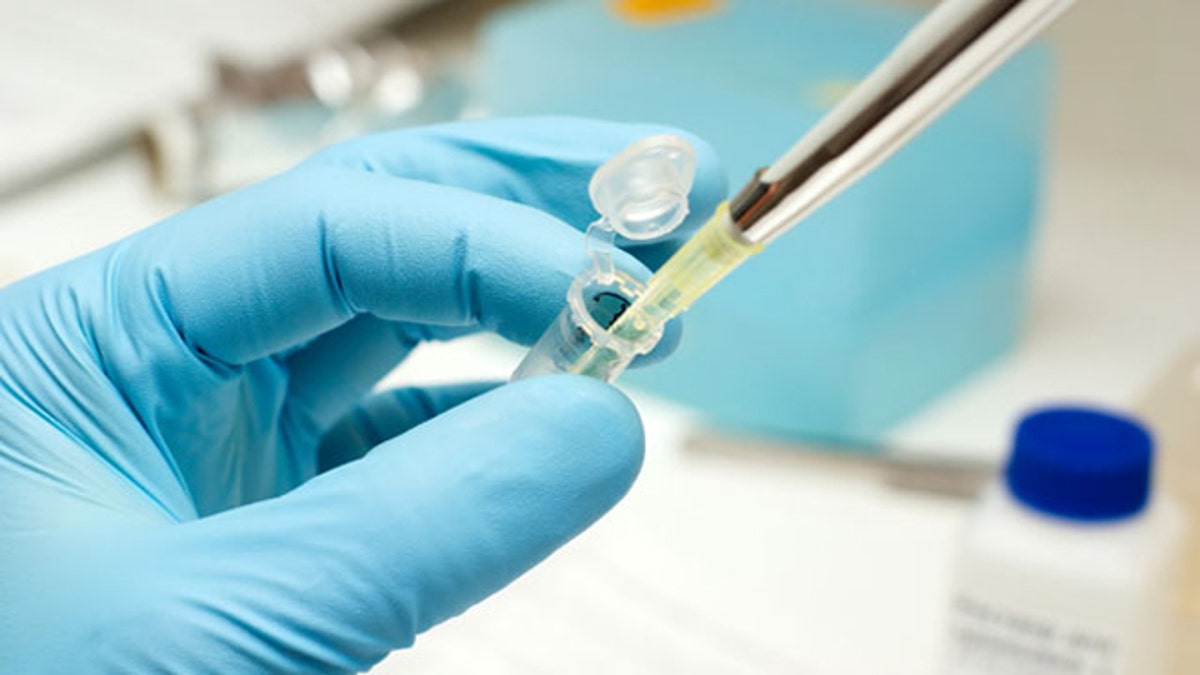
(iStock Photo)
Scientists racing to develop vaccines against Ebola are trying to determine whether they can best fight the disease with a single injection or with two, a calculation that could determine how quickly and effectively a program can be rolled out.
Administering two vaccines, one after the other, would almost certainly give far greater protection than a single shot against a deadly virus that has killed more than 6,000 people in West Africa this year.
But it would also make mass immunizations far more complicated in the worst-affected countries of Guinea, Liberia and Sierra Leone, where weak health systems have all but collapsed under the weight of the epidemic.
With the epidemic growing exponentially through much of 2014, the initial focus was on developing a single shot that could be tested and deployed as fast as possible.
Now, however, with disease transmission rates tailing off markedly in Liberia, there is more debate about a double vaccine program that would provide greater protection, even if it might take longer and be harder to implement.
"There is now more and more talk about what can we do to prolong vaccine protection," said Ripley Ballou, head of Ebola research at GlaxoSmithKline, which has one of the leading vaccine candidates.
He still hopes a single-dose vaccine will be of use in the current outbreak, but also sees a need to evaluate the "prime-boost" approach of giving a first shot to stimulate the immune system, followed by a second booster a few weeks later.
Health officials in London and Washington, as well as non-profit groups like the Wellcome Trust that are also helping fund clinical trials, are liaising closely on the best way forward.
"We're trying to decide where it is best to put the money," said one senior government adviser.
A big Liberia trial, involving up to 30,000 participants, will test single shots of GSK's vaccine, a rival one from NewLink and Merck, and a placebo.
Although the Ebola slowdown in Liberia is clearly good news, it means the trial may not see enough new cases of disease to demonstrate the benefit of vaccination.
PRODUCTION CAPACITY
Other studies are starting to analyze the prime-boost approach. Johnson & Johnson expects to start testing its experimental shot with a booster developed by Denmark's Bavarian Nordic "very soon" and its chief scientific officer, Paul Stoffels, is convinced this is the right strategy.
"It is cumbersome, because you need two vaccines, but it is clear that you will get the best protection, both short and long term, from a prime-boost," he said.
A prime-boost vaccine will be more difficult to make in large quantities, since the booster component from Bavarian needs to be grown in chicken eggs, limiting supply. But past experience suggests it should pack more punch.
Tests of similar two-pronged vaccines in other diseases suggest the booster component can increase immune responses around 30-fold for the production of antibodies and up to 10-fold for the body's own disease-fighting T-cells - two of the key elements of the ability to fight off infection - said Adrian Hill, a vaccine expert at Oxford University's Jenner Institute.
That extra protection may be needed in West Africa, where infection with malaria could also depress people's immune systems, limiting the effectiveness of immunization.
In the end, the wide program of vaccine trials scheduled for the first half of 2015 may yield a variety of options, with some experts suggesting prime-boost may be particularly suited for healthcare workers facing regular high exposure and single shots the preferred choice for rapid containment of local cases.
So far, the only human data on how well Ebola vaccines might work comes from the United States and Europe, with GSK's shot proving safe and showing some efficacy, although not comprehensive protection. NewLink's experimental shot had no serious side effects but caused some mild fever.
With the epidemic still raging, tests are likely to try out combinations of vaccines in an opportunistic way. While their impact may not become clear until later next year, the lessons learned will still be valuable in responding to the next, inevitable, Ebola outbreak.
"This disease is going to be endemic in West Africa," said GSK's Ballou. "It's important for those countries either to have routine vaccination or a stockpile option."
